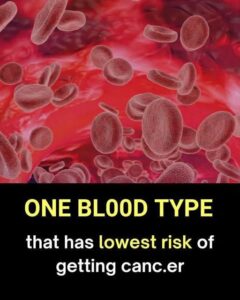Stomach Cancer
People with blood types A, B, or AB are at higher risk than type O. Type A individuals, in particular, are more prone to H. pylori infection, which can lead to inflammation, ulcers, and eventually cancer.

Ulcers
Ironically, while type A may have higher cancer risk, type O is more prone to peptic ulcers—painful sores in the stomach or intestines.
Blood Clots & Stroke
Blood types A, B, and AB are more likely to develop venous thromboembolism (VTE)—blood clots in deep veins that can travel to the lungs. AB types may also have a higher stroke risk, possibly due to clotting tendencies.
Diabetes & Heart Disease
Type 2 diabetes appears more common in blood types A and B. Type O, however, seems to have a lower risk for heart disease—possibly due to lower cholesterol and clotting protein levels.
Fertility
While blood type doesn’t determine pregnancy chances, one study linked type O with fewer healthy eggs in women, suggesting a possible link to lower fertility.
Memory & Stress
A small study found people with AB blood were more likely to have memory issues. Meanwhile, type A individuals naturally produce more cortisol, making stress harder to manage.
Malaria Resistance
Type O blood may offer some protection against malaria, as the parasite struggles to attach to type O red blood cells.
Knowing your blood type may help you understand your health risks and guide preventive care.





